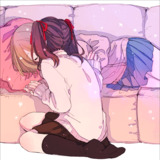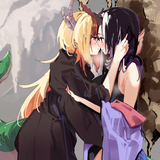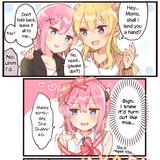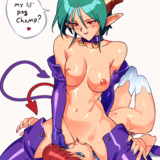People really need to stop projecting onto the text
Why? It does zero harm, can make engaging with the work more entertaining, and can lead to interesting interpretations that one wouldn't think of without it
Because it's a form of reader fantasizing that takes us away from the text itself. Of course, anybody is welcome to do that for themselves as much as they want. But these assertions are presented as interpretative arguments about how other readers are supposed to understand the text.
No it doesn't. Projection is a way to analyse the text. No text stands on it's own, everything is built on unsaid premises. Some are clearer than others but every text that exists does this. Projection then is a way to emphasise with the characters and to search for those unsaid premises by comparing them to real life.
There's no singular correct way to read any given story. Every interpretation that can be drawn from the text is valid, some more than others but all are still valid. The only problem is when people try to argue that only their own reading is correct and everything else is wrong. I've yet to see anyone here doing that
I'm just reiterating the same point I've already made though so I'm just gonna give up now








